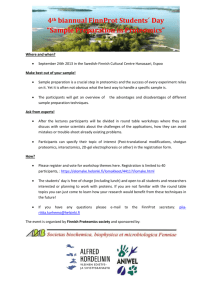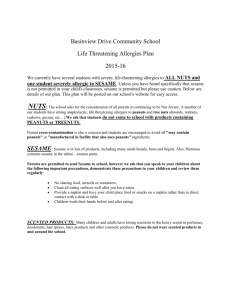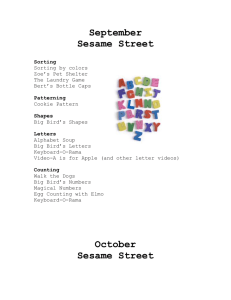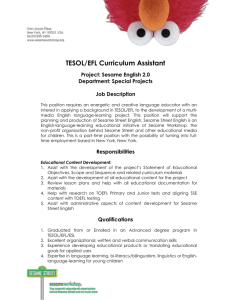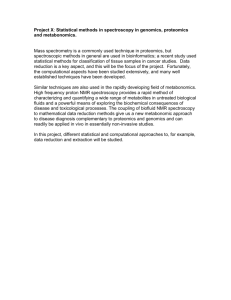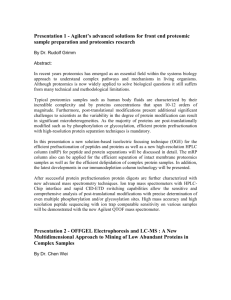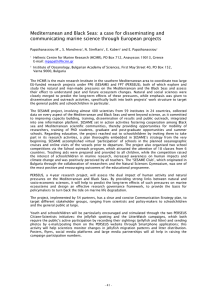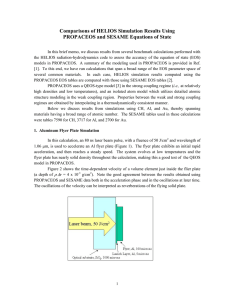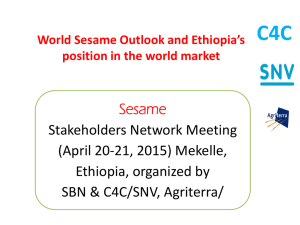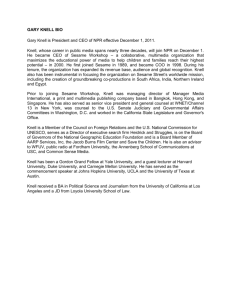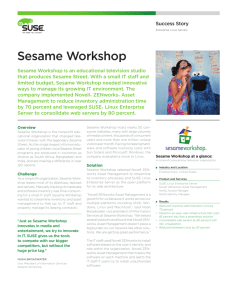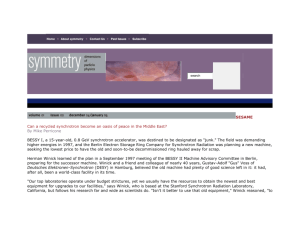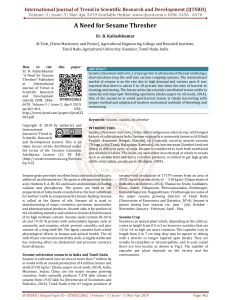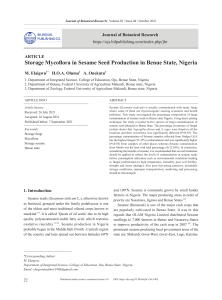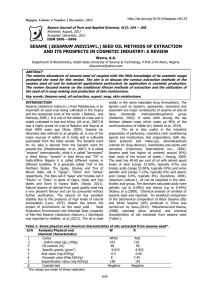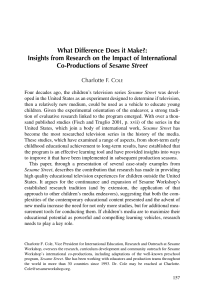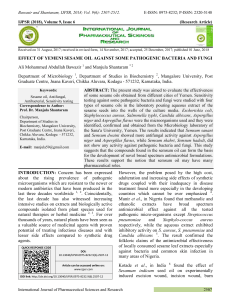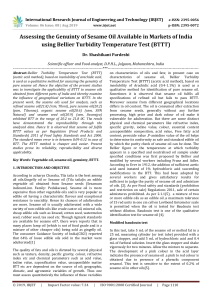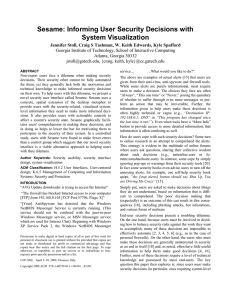Sesame Data Management System for Structural Proteomics
advertisement
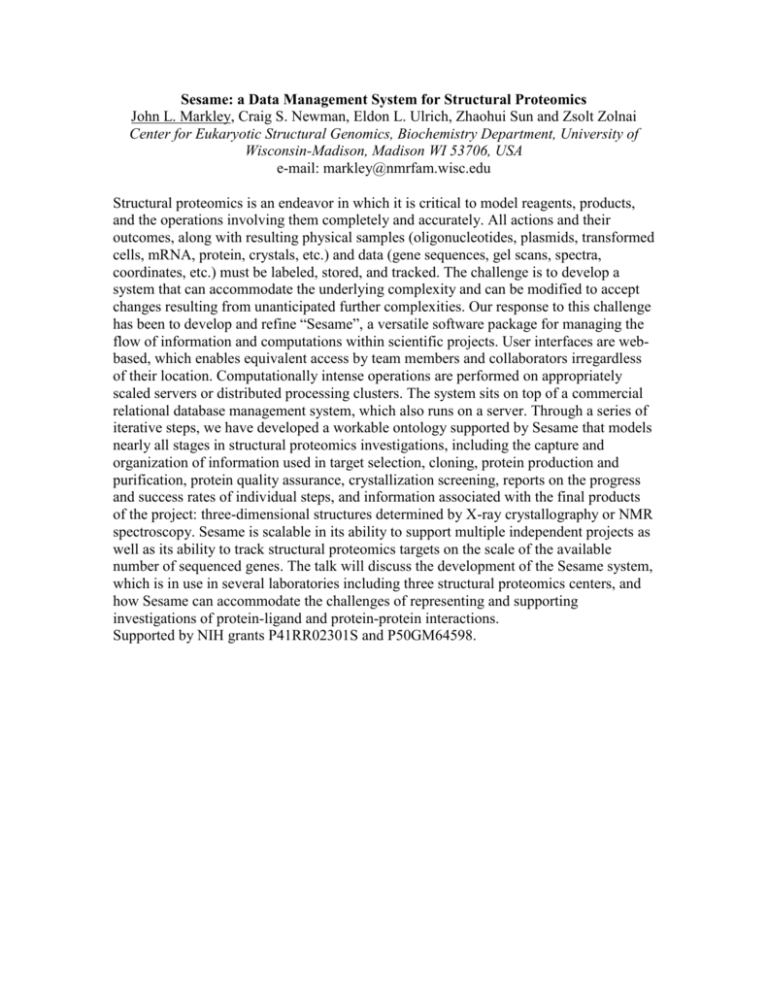
Sesame: a Data Management System for Structural Proteomics John L. Markley, Craig S. Newman, Eldon L. Ulrich, Zhaohui Sun and Zsolt Zolnai Center for Eukaryotic Structural Genomics, Biochemistry Department, University of Wisconsin-Madison, Madison WI 53706, USA e-mail: markley@nmrfam.wisc.edu Structural proteomics is an endeavor in which it is critical to model reagents, products, and the operations involving them completely and accurately. All actions and their outcomes, along with resulting physical samples (oligonucleotides, plasmids, transformed cells, mRNA, protein, crystals, etc.) and data (gene sequences, gel scans, spectra, coordinates, etc.) must be labeled, stored, and tracked. The challenge is to develop a system that can accommodate the underlying complexity and can be modified to accept changes resulting from unanticipated further complexities. Our response to this challenge has been to develop and refine “Sesame”, a versatile software package for managing the flow of information and computations within scientific projects. User interfaces are webbased, which enables equivalent access by team members and collaborators irregardless of their location. Computationally intense operations are performed on appropriately scaled servers or distributed processing clusters. The system sits on top of a commercial relational database management system, which also runs on a server. Through a series of iterative steps, we have developed a workable ontology supported by Sesame that models nearly all stages in structural proteomics investigations, including the capture and organization of information used in target selection, cloning, protein production and purification, protein quality assurance, crystallization screening, reports on the progress and success rates of individual steps, and information associated with the final products of the project: three-dimensional structures determined by X-ray crystallography or NMR spectroscopy. Sesame is scalable in its ability to support multiple independent projects as well as its ability to track structural proteomics targets on the scale of the available number of sequenced genes. The talk will discuss the development of the Sesame system, which is in use in several laboratories including three structural proteomics centers, and how Sesame can accommodate the challenges of representing and supporting investigations of protein-ligand and protein-protein interactions. Supported by NIH grants P41RR02301S and P50GM64598.
